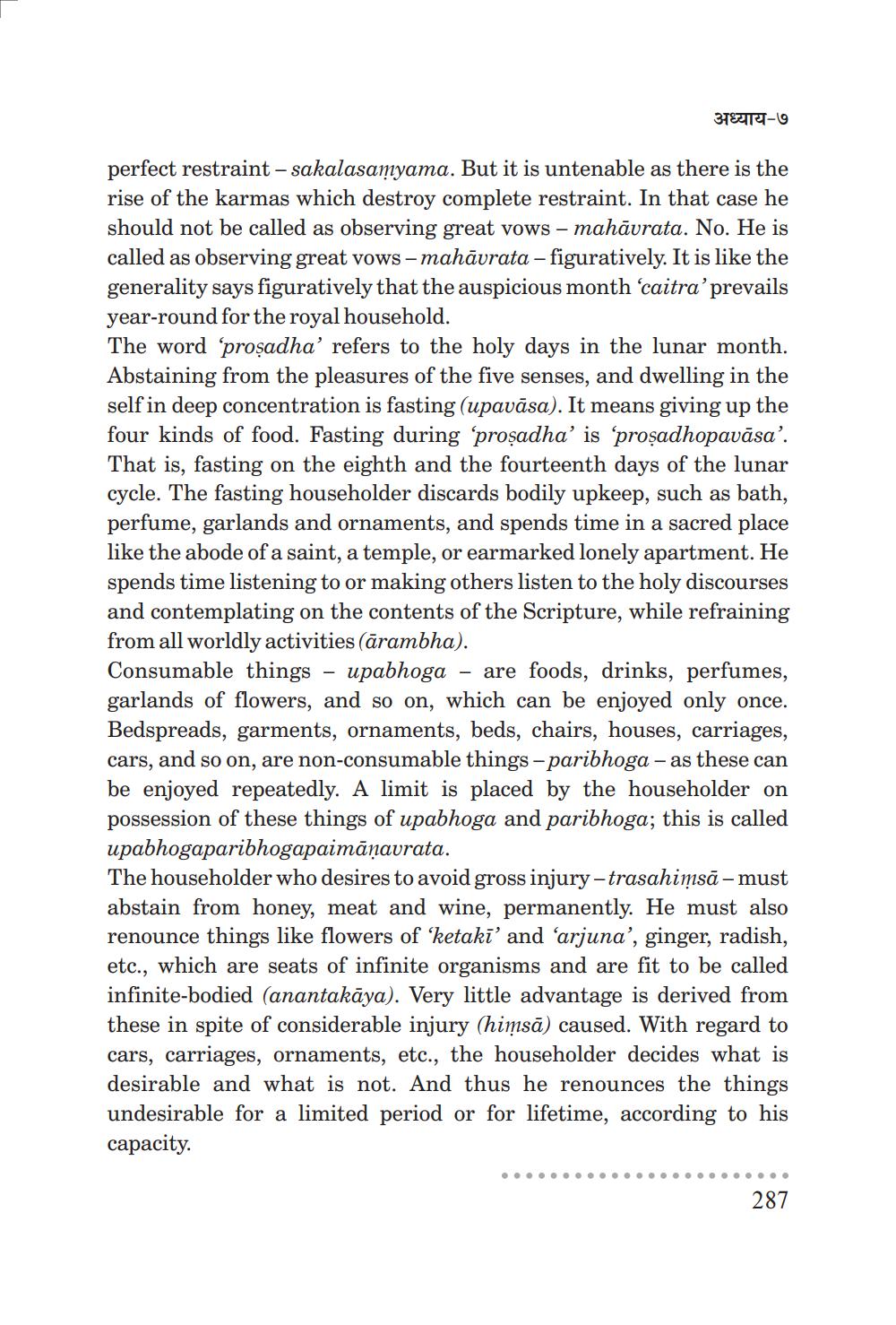________________
अध्याय-७
perfect restraint - sakalasamyama. But it is untenable as there is the rise of the karmas which destroy complete restraint. In that case he should not be called as observing great vows - mahāvrata. No. He is called as observing great vows – mahāvrata – figuratively. It is like the generality says figuratively that the auspicious month ‘caitra'prevails year-round for the royal household. The word 'prosadha' refers to the holy days in the lunar month. Abstaining from the pleasures of the five senses, and dwelling in the self in deep concentration is fasting (upavāsa). It means giving up the four kinds of food. Fasting during ‘proşadha' is 'proşadhopavāsa'. That is, fasting on the eighth and the fourteenth days of the lunar cycle. The fasting householder discards bodily upkeep, such as bath, perfume, garlands and ornaments, and spends time in a sacred place like the abode of a saint, a temple, or earmarked lonely apartment. He spends time listening to or making others listen to the holy discourses and contemplating on the contents of the Scripture, while refraining from all worldly activities (ārambha). Consumable things - upabhoga - are foods, drinks, perfumes, garlands of flowers, and so on, which can be enjoyed only once. Bedspreads, garments, ornaments, beds, chairs, houses, carriages, cars, and so on, are non-consumable things -paribhoga - as these can be enjoyed repeatedly. A limit is placed by the householder on possession of these things of upabhoga and paribhoga; this is called upabhogaparibhogapaimāņavrata. The householder who desires to avoid gross injury - trasahimsā - must abstain from honey, meat and wine, permanently. He must also renounce things like flowers of ‘ketakī' and 'arjuna', ginger, radish, etc., which are seats of infinite organisms and are fit to be called infinite-bodied (anantakāya). Very little advantage is derived from these in spite of considerable injury (himsā) caused. With regard to cars, carriages, ornaments, etc., the householder decides what is desirable and what is not. And thus he renounces the things undesirable for a limited period or for lifetime, according to his capacity.
.
.
.
.
.
.
.
.
.
.
.
.
.
.
.
.
.
.
287




